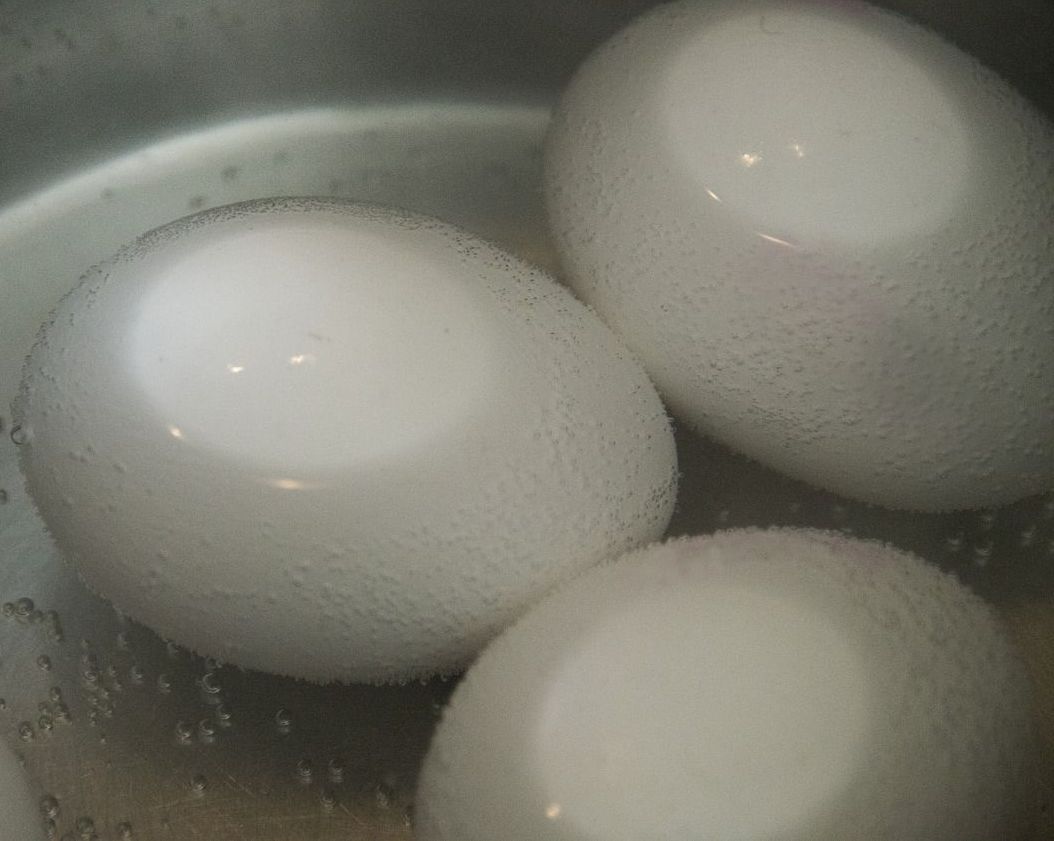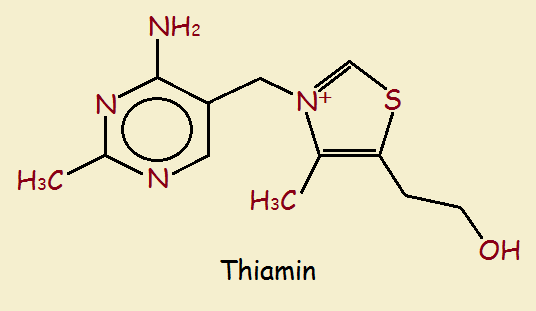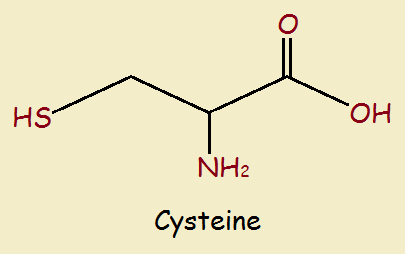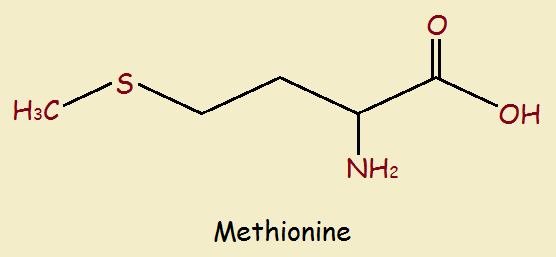
Peel a boiled egg, break it open, and you will detect the distinct boiled eggs sulfur smell. Now foods do not contain sulfur (symbol S) in its elemental form. Rather, they contain compounds that include sulfur in their composition. What sulfur-containing compounds do we find in hen’s fruit? In themselves, they are nutritious—even essential—compounds.
Boiled Eggs Sulfur Smell: Amino Acids
Eggs contain proteins such as albumin. Proteins are amino acids that have joined together. Amino acids are nutritious chemicals that contain nitrogen. Most amino acids do not contain sulfur. However, two do contain sulfur in addition to nitrogen—methionine and cysteine. In fact, they contain nitrogen and sulfur in equal amounts. The chemical formula of methionine is C5H11NO2S. Cysteine is C3H7NO2S.
Boiled Eggs Sulfur Smell: Vitamin B1 Thiamin

The human body does not produce its own thiamin. Only plant life produces it. This sulfur-containing vitamin is essential to life. Deficiencies can lead to serious ailments, including beriberi. Thiamin, like proteins and their constituent component amino acids, contains nitrogen. Its chemical formula also includes sulfur: C12H17N4OS+.
Is Sulfur Bad for You?

Although some consider eggs, at least in any sizable quantity undesirable in their diet, sulfur is essential to human existence. Other foods rich in sulfur such as onions and garlic—are openly acknowledged excellent dietary supplements. Boiled eggs contain about 180 milligrams sulfur in a 55-gram egg. This translates roughly to 1/3 of 1 percent.
 The amount of protein the average person (who is not malnourished) consumes probably contains sufficient sulfur. The eating of large quantities of eggs—indeed the eating of any eggs—is not essential to well being. In eggs’ defense, neither do most of us need to avoid them, except, perhaps, for reasons of social acceptance.
The amount of protein the average person (who is not malnourished) consumes probably contains sufficient sulfur. The eating of large quantities of eggs—indeed the eating of any eggs—is not essential to well being. In eggs’ defense, neither do most of us need to avoid them, except, perhaps, for reasons of social acceptance.
Note: You might also enjoy Instant Pudding Thickening Chemistry

How can I eat potato salad, when I’m allergic to sulfur? I had a urinary tract infection and they gave me sulfur [containing] antibiotics. I [developed a] bad rash and [had to be] hospitalized.
Each person is a distinct individual. Yet, we all have sulfur in our bodies, no exceptions. How it can acceptably enter our bodies is another thing. Your personal physician is in the best position to determine that.
I thought I’d add another reply, Anna. If you are thinking you are allergic to sulfur solely on the basis of the sulfur-containing antibiotic you had a bad experience with, you may well be wrong. In fact, I wouldn’t be surprised at all. Check with your physician is still good advice, but realize you have sulfur in your body that had to come from somewhere… if not through diet, then where?
If you just have an allergic experience of sulfur containing antibiotics, it is also possible that the disturbance of beneficial gut micro-flora by antibiotics could be the real cause of allergic response.
Your comment reminded me of the discovery that the appendix may serve as a repository of beneficial bacteria to replenish the body with bacteria when needed. And to think people once were told the appendix is a vestigial organ.
Sulfa drugs are an important type of antibiotic. The allergic reaction was probably to sulfa drugs, not to sulfur in general. Sulfa drugs do contain sulfur, but so do all foods; most water has trace amounts of dissolved sulfur compounds.